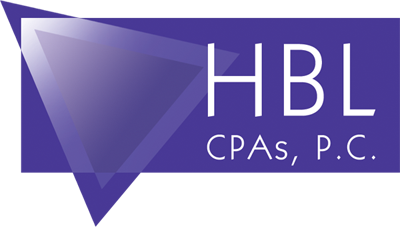While most nonprofit organizations are exempt from federal income tax, many may still face costs from unrelated business income (UBI), employment taxes, and state-level taxes. Planning ahead, especially before year-end, can help your organization reduce liabilities and free up funds to put back into your mission.
1. Strategically Time Expenses
If your nonprofit files on a cash basis, the timing of your expenses matters. Consider prepaying certain costs like rent, insurance premiums, or vendor contracts before December 31 to increase deductions related to unrelated business income that is subject to tax. If you anticipate higher expenses or lower revenue this year, deferring income (like rental income related to debt-financed properties) into the new year may also help even things out.
2. Maximize Deductions on Equipment & Improvements
Nonprofits can often deduct the full cost of equipment purchases or improvements used in activities that generate taxable income (like a gift shop or rental property). If your organization has UBI, tools like Section 179 expensing and bonus depreciation may apply. This could include things like new computers, vehicles, or fixtures used for business-related functions.
For private foundations, consider making additional grants to qualifying nonprofit organizations prior to year-end to make sure you have satisfied your requirements related to distributable income. A failure to satisfy those requirements could result in penalties, additional excise taxes or even a change in exempt status with the IRS.
Check with a CPA to ensure the purchase qualifies, and remember that recordkeeping is key. Keep receipts and usage logs in case you’re audited.
3. Leverage Employee Benefit Contributions
If you offer a retirement plan (like a 403(b) or a 401(k)), consider increasing employer contributions before year-end if the plan provides for an allowable discretionary contribution. These are typically deductible and can improve retention while lowering your tax exposure on payroll. For nonprofits with UBI, this can offset income subject to tax.
4. Take Advantage of Tax Credits
Even nonprofits may be eligible for certain federal and state payroll-related tax credits, especially those related to employment or energy efficiency:
- Work Opportunity Tax Credit (WOTC): If your nonprofit employs individuals from targeted groups, you may qualify.
- Energy Efficiency Incentives: Installing solar panels or energy-efficient upgrades to your facilities could earn a federal investment tax credit if your entity is subject to such taxes.
- Employee Retention Credit (ERC): While the main ERC ended, some nonprofits may still be eligible for retroactive credits if they were impacted by COVID in prior years.
5. Don’t Overlook State & Local Taxes
Some states impose taxes on property, sales, or even UBI. If your nonprofit runs a thrift store, cafe, or other revenue-generating operation, you may owe state income tax. Proper documentation and classification of expenses can minimize the taxable portion of that income.
Plan Ahead with a Pro
2025 is a pivotal planning year. With individual and business tax rates set to change after 2025 under current law, now’s the time to review your strategy. A qualified tax advisor can help ensure your nonprofit stays compliant, makes the most of available deductions and credits, and doesn’t leave money on the table.
Bottom Line:
Nonprofit doesn’t mean non-taxable. With smart timing, strategic investments, and a little proactive planning, you can reduce your 2025 tax liability and put more resources toward the work that matters.




